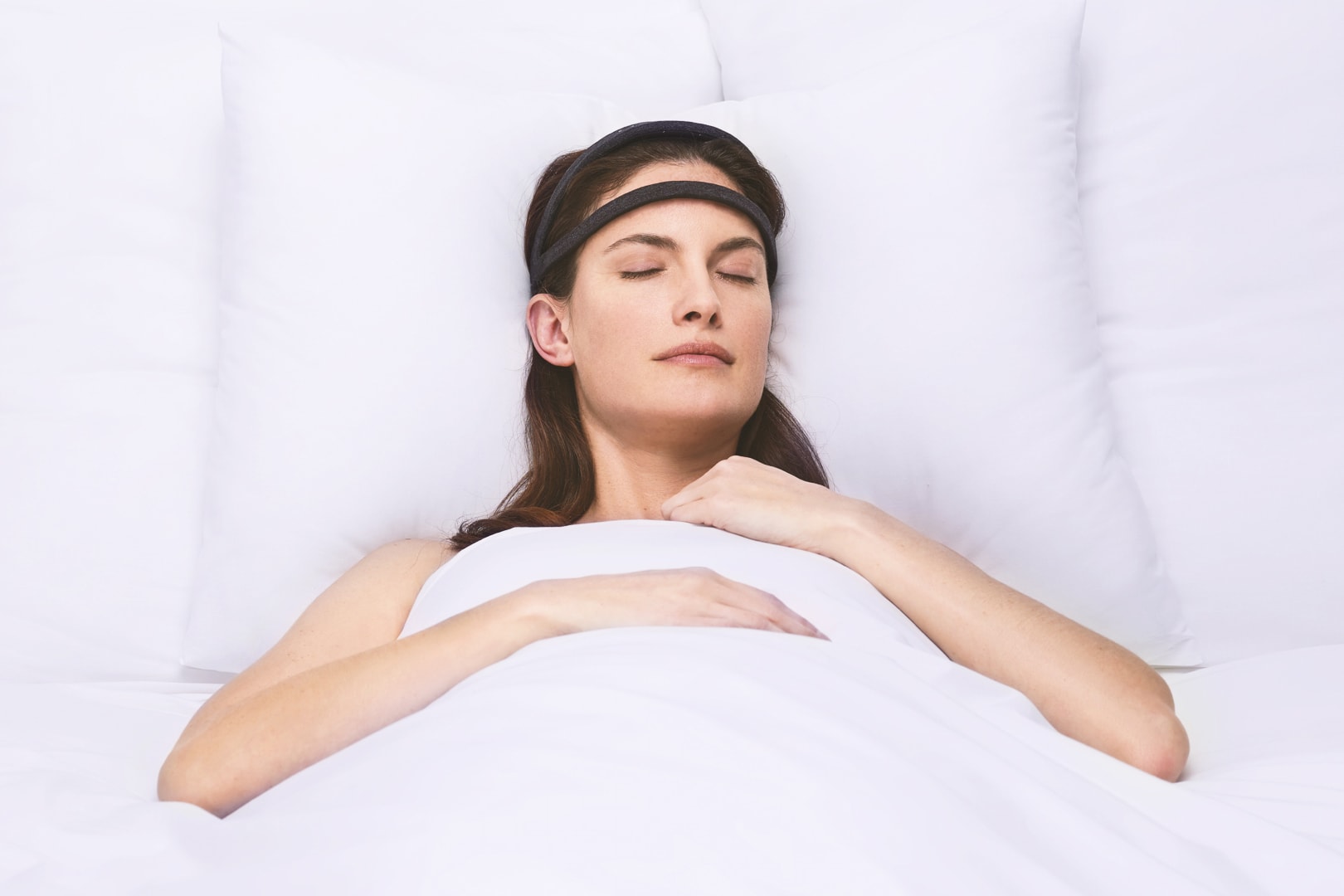
The Dreem 2 headband tracks brain activity, heart rate, breathing and movement.
Source: Dreem
Getting a good night’s sleep is about much more than avoiding screens before you hit the hay.
Dreem, a tech company that aims to help people sleep better, tracks brain activity, heart rate, breathing and movement of its customers with its headband called Dreem 2.
The company has collected over 1 million nights of recorded sleep from thousands of individuals. Here’s what it found:
Sleeping alone helps
In its analysis, Dreem found that people sleeping alone were able to get to sleep five minutes faster on average. Solo sleepers also had 20% more deep sleep – the type you need to feel refreshed throughout the day — than people sleeping with someone else.
Couples can have different preferences about how they like to sleep, including types of sheets, temperature of the bedroom and time they go to bed, said Jared Minkel, a clinical assistant professor at Brown University and director of adult behavioral sleep medicine at Rhode Island Hospital.
It doesn’t get better with time.
“People aren’t really that good at sleeping together and the older you get, the worse it gets,” Minkel said. “As people get older and they develop breathing problems and movement disorders, they’ll wake each other up.”
The full moon makes a difference
It’s no myth — the full moon may be affecting how well you sleep. On nights where there was a full moon, it took 9% more time for people to fall asleep, and they experienced 7% less deep sleep.
But it’s not just from the moon shining through your window.
“It seems that it happens even if the amount of light is the same. It happens the same if it’s cloudy,” said Quentin Soulet de Brugiere, co-founder and CTO of Dreem.
Although it’s not clear what causes disturbances in sleep during the full moon, the company’s thinking is that there may be some ancient reaction humans have to it, like that it’s associated with danger.
“The idea with the full moon is that it’s more an inherited thing from the past, not just a behavior coming from how it’s a bit lighter outside,” Soulet de Brugiere said.
Staying up one night won’t help you fall asleep faster the next
Even if you’re tired from staying up late the night before, you likely won’t fall asleep faster the next night. Dreem’s data showed that the night after people stayed up later than usual, they still took about the same amount of time getting to sleep. The company found that staying up late chronically, however, may eventually cause you to fall asleep faster.
It’s important to try to go to bed and wake up around the same time every night, said Cathy Goldstein, an associate professor of neurology at the University of Michigan Sleep Disorders Center.
People tend to go to sleep and wake up much later on the weekends, Goldstein said, which makes it hard to adjust.
“It’s like you’re flying from LA back to NY.”
You also can’t just make up your hours of sleep on the weekends.
“If you know you need eight hours of sleep to feel well rested and you’re only getting six during the weekdays, you won’t be able to make that up on the weekends,” Goldstein said.
Benjamin Franklin might have been wrong about rising early
“Early to bed and early to rise makes a man healthy, wealthy and wise.” The adage from Benjamin Franklin might not be true.
What matters most, Dreem’s data showed, is how long someone sleeps.
“People who are late sleepers — as I am — we suffer a lot from the vision that we are lazy people, that we don’t want to wake up,” Soulet de Brugière said.
But late sleepers might actually be getting better sleep. While most people who went to bed early tended to sleep more, those who went to bed later took less time to fall asleep, got a little more deep sleep and woke up fewer times throughout the night, the data showed.
“Going to bed too early is a mistake,” Minkel said. “If you want to shift what time you go to bed, you have to start with your wake up time.”
